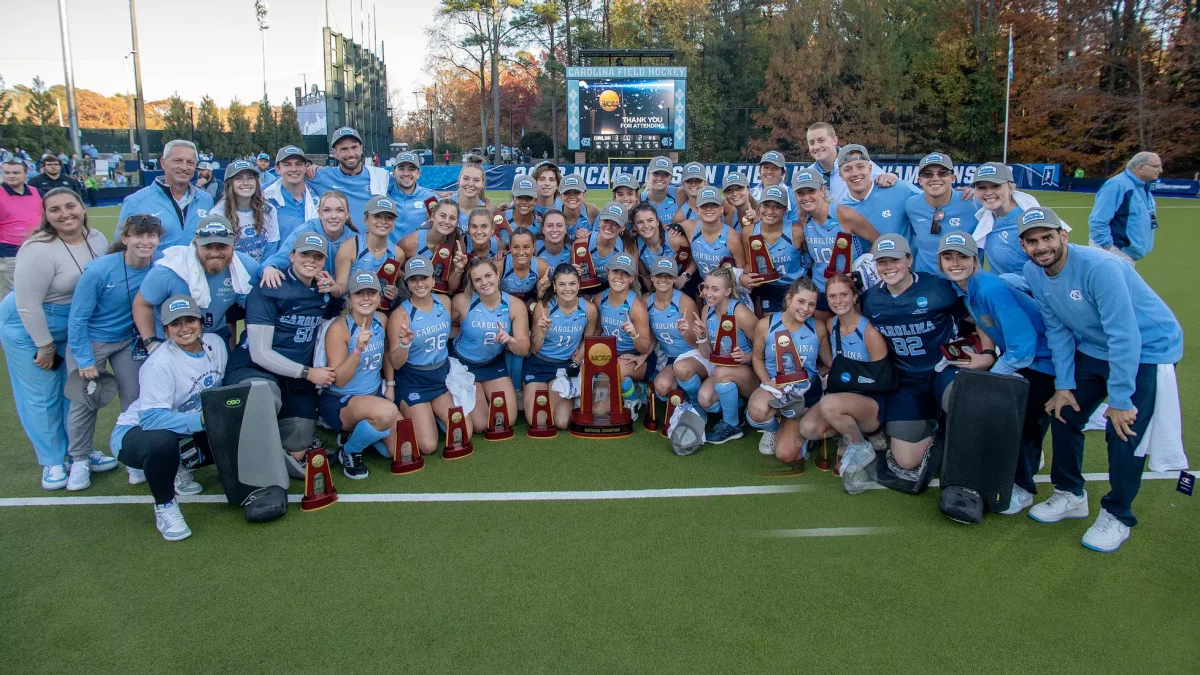Clinic offers hope for ‘butterflies’
In this video, meet patients known by the nickname who receive holistic care at the UNC Turner Syndrome Clinic.
Press the play button above to watch the video
When you walk inside the Mascio family’s home, you’re greeted by family photos, toys galore and their trusted dog, Foxy. And one motif can be found throughout the entire house: butterflies.
They are everywhere. On the walls and in the kitchen, the bathroom, and 11-year-old Hope’s bedroom. Hope even has clothing and jewelry embellished with the colorful insects.
“I’ve been obsessed with butterflies, like, all my life,” Hope says.
Like others with Turner syndrome, Hope is called a “butterfly.” The condition results when one of the two X chromosomes females are typically born with is missing or partially missing. (The name “butterflies” and butterfly imagery became associated with the syndrome, according to the Turner Syndrome Foundation, because the X chromosome resembles a butterfly with its wings spread.)
Hope was first diagnosed with Turner syndrome when her mother was pregnant with her, and she has been going to the UNC Turner Syndrome Clinic to receive care since she was born.
About one in every 2,500 children have the condition.
Turner syndrome can impact virtually every aspect of a person’s life, especially growth. The average height of an adult woman with the condition is 4 feet 8 inches. At 4 feet 2 inches, Hope is about the height of a girl three years younger without the condition.
Turner syndrome also affects hearing, heart and neurocognitive health, puberty and function of the ovaries. Most who have it struggle to conceive.
“Pretty much every organ system can be impacted by Turner syndrome, except maybe the lungs,” says Dr. Jennifer Law, the clinic’s medical director. “It’s important that an individual with the condition is screened so we can see how it presents and make sure it’s not causing them any problems.”
Offering holistic care
For a typical patient visit, Law coordinates appointments with a team of specialists ranging from cardiology to audiology. A person with hearing loss will receive aids, while someone with heart problems will be regularly monitored by a cardiologist.
This multidisciplinary approach has earned UNC Hospitals recognition from the Turner Syndrome Global Alliance as a regional resource center. This distinction recognizes that the clinic participates in transition care from pediatric to adult clinics and engages in clinical research studies. Nine of these regional resource centers exist across the country.
Law is also a professor of pediatric endocrinology in the UNC School of Medicine. Her research studies at the clinic focus on studying the natural history of Turner syndrome across the lifespan.
“I just wish more people knew what Turner syndrome is,” Law says. “Improving awareness improves diagnosis, treatment development and the daily lives of these individuals.”
The most common treatment Law offers patients is a once-a-day growth hormone injection. The clinic is also participating in the New InsiGHTS clinical trial, a research initiative testing a once-a-week injection option.
“That would be life-changing,” says Hope, who started taking daily hormone injections when she was 2.
Finding the silver linings
Being a girl with Turner syndrome, as Hope sees it, doesn’t mean life can’t be fun.
Visits to the Carolina clinic become an opportunity to learn about new science that most 11-year-olds never experience, and her nightly injection is a joyous time for making popcorn and watching a movie with her sisters.
“It makes me a lot stronger, and it makes me see the positive in everything,” Hope shares. “I wish more people knew that it doesn’t affect you much. It does make you short. And you do have to go to the doctor more. But you’re still you. You’re still someone. And it doesn’t define you.”







